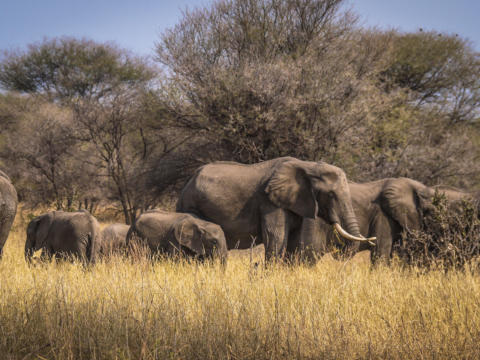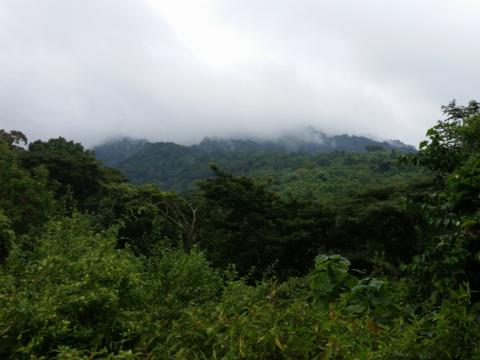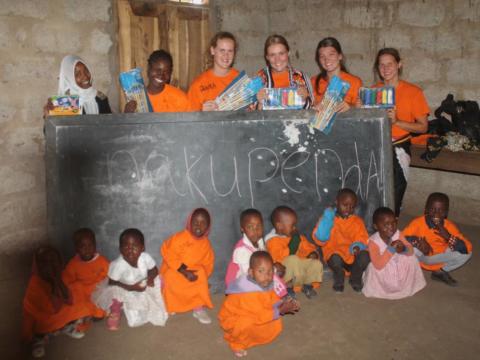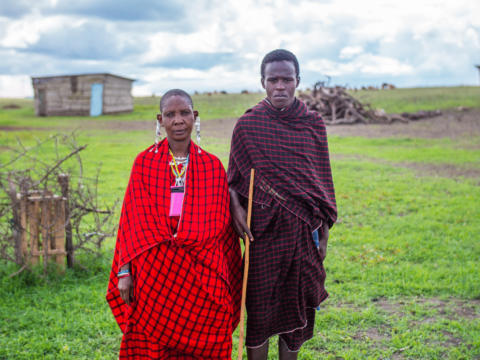Only 600€ per week!
Zanzibar Culture Week
Stone Town - Tanzania
Get to know Zanzibar! Explore the rich culture, the complex history, and meet amazing people who call this fantastic place home.
This once independent island nation has actually put the “Zan” in what we now call Tanzania. As you learn more about this unique location you will enjoy the warmth of the weather and the local community. You will visit local sites and enjoy breathtaking views during this week long introduction.
Program Description
Get lost in the mesmerizing maze-like layout of Stone Town, glimpse the turtles of Prison Island and learn the history and culture of Zanzibar. This is an opportunity for exploration that will give you both insight and appreciation for Zanzibar, an island location known and loved for its spices and unique atmosphere.
This is where worlds and cultures combine to create a beautiful mosaic that encompasses, African, Arabic, Asian, and European influences. While perusing Stone Town, you may find that the door itself is even more interesting than what may be behind it. Enjoy the chance to be transported through time and lulled into a peace as you relax on the beach. Then when the sun goes down, get into the rhythm of the Zanzibar nightlife.
There is so much to take in that your senses of smell, taste, sight and touch are all stimulated by the exotic nature of this truly remarkable place.
Aims & Objectives
- Help you learn helpful phrases in the local language
- Broaden your knowledge of the local customs, history and culture
- Enjoy local sights and activities
- Provide a full induction, preparing you for a longer stay
Schedule
Monday
- Breakfast
- Orientation
- Swahili Language Lesson
- Lunch
- Walking tour visiting local shops near the accommodation
- Dinner
Tuesday
- Breakfast
- Guided Stone Town City Tour with History
- Lunch
- Visit local market
- Swahili food cooking lesson
- Dinner
Wednesday
- Breakfast
- Swahili Language lesson
- Lunch
- Spice Farm experience
- Swahili house visit
- Changuu island experience
- Dinner
Thursday
- Breakfast
- Village Cycling Tour
- Learn about the traditions and practices of local healers or “Witch Doctors”
- Lunch
- Khanga Demonstration
- Coconut ropes making
- Coconut roof making
- Dinner
Friday
- Breakfast
- Full Beach Day
- Bag lunch provided
- Souvenir/Spice shopping
- Dinner
Note: This schedule can be changed and/or amended depending on weather conditions, local conditions and unforeseen circumstances.
Participant Criteria & Requirements
Standard Requirements
Minimum age: –
Maximum age: –
Minimum English level: Basic
CRB required: On Signup
Passport copy required: No
Resume copy required: No
Required qualification: None
Additional Requirements
There are no further requirements for this program.
Additional Equipment
No additional equipment required.
Location
Zanzibar is an amazing enigma that tempts you to explore it from end to end. It is a semi-autonomous region within the United Republic of Tanzania and it is comprised of two main islands, Unguja and Pemba, and a number of sparsely populated islets. After the 1964 revolution, Zanzibar joined with the then Tanganyika to form the United Republic of Tanzania. Zanzibar maintains its own government and is directly responsible for all non-union affairs, including health services.
Unguja Island covers an area of about 1,464 square kilometers and Pemba Island covers an area of about 864 square kilometers. The local people are a mixture of ethnic backgrounds. Islam is the dominant religion and practiced by most of Zanzibaris, although there are also followers of Christianity and other ethnic beliefs. Swahili is a local language used by people and is spoken extensively in Zanzibar. English is also spoken by many people.
About the Accommodation
You will be staying in a traditional and comfortable guesthouse with multiple bedrooms, communal bathrooms, a kitchen and one sitting room — suitable for enjoying the company of your fellow participants. Please note that all rooms are single gender. All meals will be provided at this accommodation.
Food Arrangements
Local meals that are typical of Zanzibari culture will be provided at this accommodation.
Facilities
You will easily find a few small local stores that sell snacks, drinks and any basic supplies you might need during your stay. Nearby, there are ATM's, banks, shops, a local pharmacy, etc.
Activities & Events
No scheduled activities outside the program.
Sights & Surroundings
Zanzibar
Zanzibar is known for its sandy white beaches and unique culture. While here, don’t miss Stone Town, a place that is emblematic for its mazes and spices (take a spice tour for sure!). Another must is a visit to Prison Island, where you can spot dolphins and marine life. Travel north or east of the island for some of the best and cleanest beaches in the world and enjoy the Indian Ocean at its best!
Transportation
From this location we do not provide free transport to other locations.
Quick Facts
Name: United Republic of Tanzania
Population: 52 million
Capital: Dodoma
Language: Swahili, English
Currency: Tanzanian Shilling (TZS)
Time zone: EAT (UTC +3)
Country Information
Tanzania is a large country in Eastern Africa within the African Great Lakes region. Parts of the country are in Southern Africa and it is bordered by Kenya and Uganda to the north; Rwanda, Burundi, and the Democratic Republic of the Congo to the west; Zambia, Malawi, and Mozambique to the south; and by the Indian Ocean to the east. It is home to Kilimanjaro, Africa's highest mountain, in its northeastern region and is considered the Safari capital of the world!
Tanzania is a presidential constitutional republic, and since 1996, its official capital city has been Dodoma, where the President's Office, the National Assembly, and some government ministries are located. Dar es Salaam, the former capital and its largest city, retains most government offices and is the country's principal port and leading commercial centre.
Climate
Climate varies greatly within Tanzania. In the highlands, temperatures range between 10 and 20°C during cold and hot seasons respectively.
The rest of the country however has temperatures rarely falling lower than 20°C. The hottest period extends between November and February (25–31°C) while its coolest period occurs between May and August (15–20°C).
Tanzania has two major rainfall regimes: one is uni-modal (October–April) and the other is bi-modal (October–December and March–May). The former is experienced in southern, central, and western parts of the country, and the latter is found in the north from Lake Victoria extending east to the coast.
Culture
Tanzania's large population is diverse, composed of several ethnic, linguistic and religious groups.
Christians and Muslims make up the large majorities, but 2% still practice Traditional African Religion.
Over 100 different languages are spoken in Tanzania, making it the most linguistically diverse country in East Africa. All four of Africa’s language families are spoken (Bantu, Cushitic, Nilotic, and Khoisan), but Swahili and English are its official languages, though Swahili is pushed officially as a unifying language, to the detriment of other minority languages, even English.
Transportation
Car
Although much of its roads are usually in poor condition, most transport in Tanzania is by road, 80% of its passenger traffic in fact. Rentals, Taxis, buses and mini buses (locally known as “dala dala”) account for the main methods of transportation.
Train
Tanzania’s railways have a spotty safety record and it is not uncommon to have passengers experience frustration with slow journeys, frequent cancellations and delays, but if you have the time – it is a unique way to travel with amazing landscapes decorating the backdrop!
Airplane
Tanzania has four international airports, along with over 100 small airports or landing strips; airport infrastructure tends to be in poor condition although there are reports of improvements in this area. Local airlines in Tanzania include Air Tanzania, Precision Air, Fastjet, Coastal Aviation, and ZanAir.





